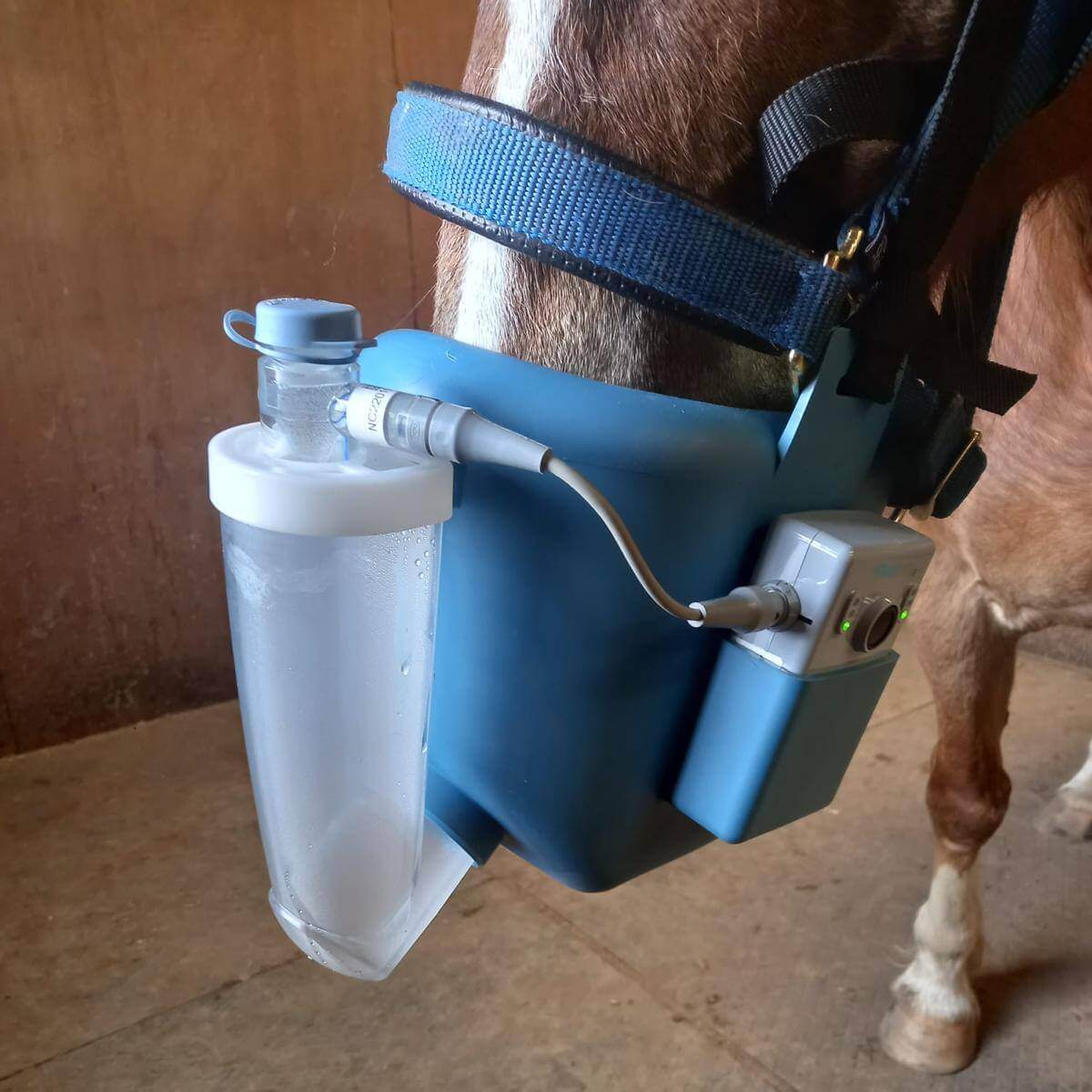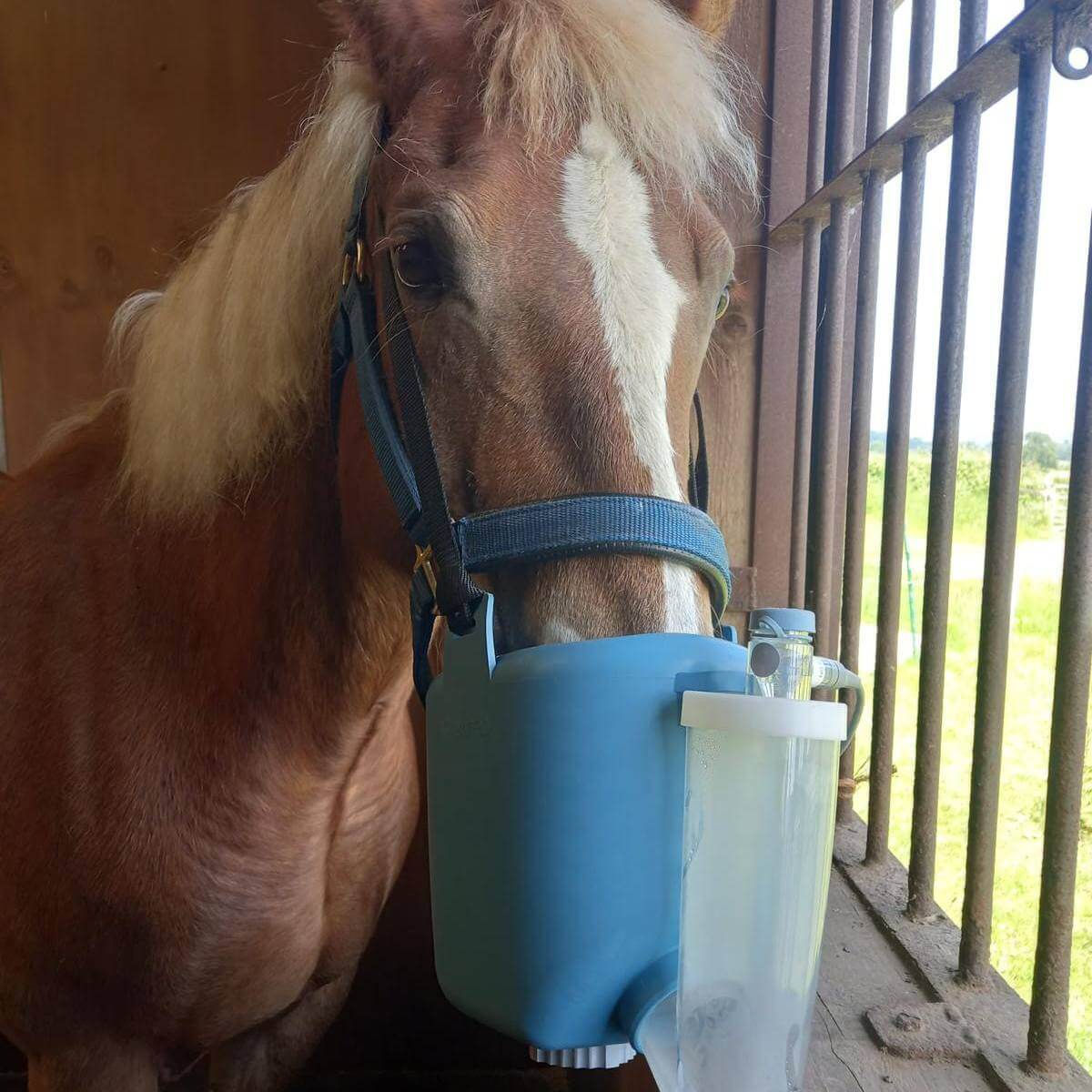Spirit is a much loved twelve-year-old Welsh cob who loves nothing more than to go on lovely hacks with his owner and frolic about the field with his little friend Solomon. However Spirit's owner noticed that this year he was struggling to hack or frolic quite with his usual gusto, as he was too busy coughing. The cough was particularly noticeable at night when he came into his stable and first thing in the morning.
This case study outlines how we diagnosed Spirit with asthma, and how our equine vets managed his condition using an equine nebuliser. For more information on asthma in horses, you can take a look at our guide to equine asthma.
Diagnosing Spirit’s Equine Asthma
One of our equine vet team examined Spirit and found that he had a frothy, greyish nasal discharge coming from both nostrils. Furthermore, amongst other symptoms, his lungs were making a louder than normal noise when he breathed out. Spirit had also developed a line down each side of his chest which is nicknamed a 'heave line'.
Now, these symptoms can be caused by a number of conditions. For example, inflammatory airway disease, bacterial and fungal infections or equine asthma. Given the presentation and after some investigations, Spirit was diagnosed with equine asthma.
You can learn more about the symptoms of equine asthma in our guide.
Managing Equine Asthma With an Equine Nebuliser
Spirit was put on some medication whilst some management changes were implemented and he was then taken off the medication. Sadly, management changes weren't enough so it was decided Spirit was going to need treatment on a regular basis.
Spirit was trained to use a nebuliser using our hire machine whilst he was ordered his own one and then once he was happy we started introducing some treatment. Luckily for Spirit, nebulising with just saline was enough to keep him breathing easily and won't affect him if he were to branch out and do some competing. However, now that he is trained, we can add in more medications into the nebuliser should he have a flare up.
You can learn more about the diagnosis and management of asthma in horses with our guide.

What About Respiratory Supplements for Horses?
There are many different respiratory supplements on the market, but there is no evidence base to prove they will make a difference to a true respiratory condition. In Spirit’s case, if we found out what his asthma trigger was then maybe we could remove it from his environment or move him elsewhere. For now, however, he is enjoying his nebuliser and is back to hacking and frolicing to his heart's content!
Avonvale Equine Vets | Independent Vet Practice
Our highly qualified equine vets are experienced in diagnosing and treating respiratory conditions including equine asthma. As well as offering free weekly zone visits for routine and non-emergency appointments, our fully-equipped equine vet clinic in Ratley, near Banbury, allows us to offer advanced diagnostics, treatments and surgical procedures. If you have any questions about asthma or any other condition, don't hesitate to call and speak to one of our experienced vets. Register your horse with our independent equine vet practice today.










